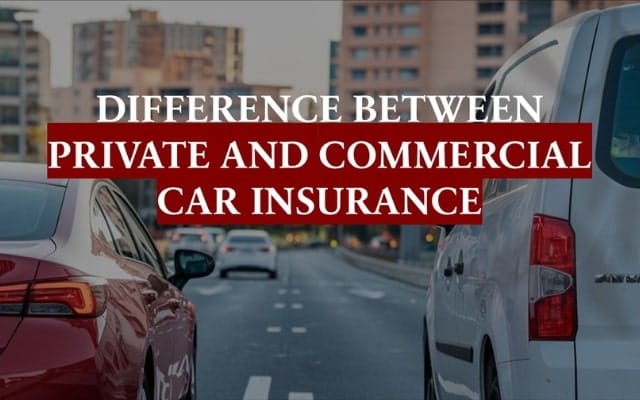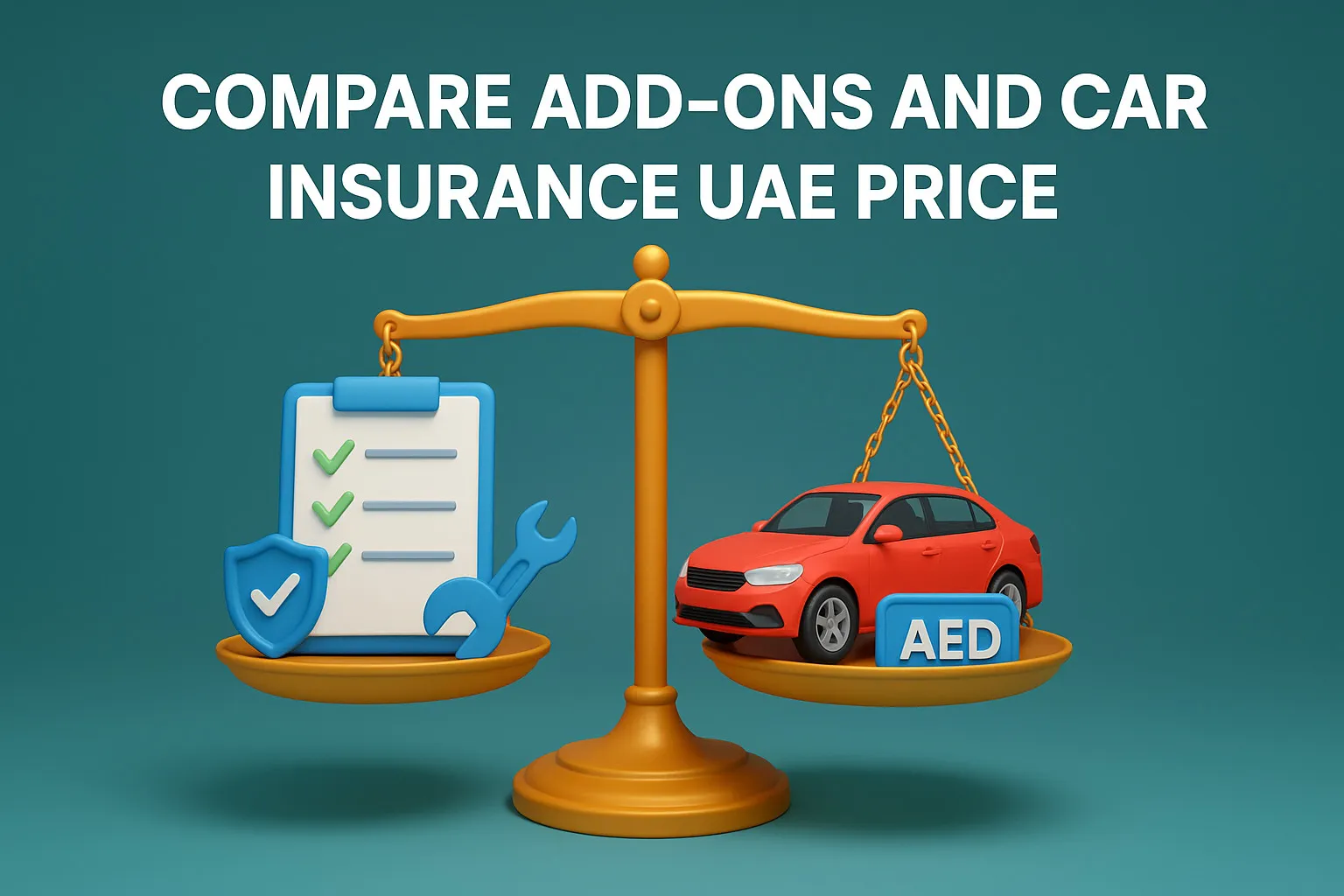Choosing the right car insurance in the UAE is more than just ticking a legal box—it’s about ensuring you’re adequately protected, whether driving for personal use or running a business. Understanding the difference between private and commercial car insurance is important to ensure your vehicle is covered appropriately for its use. Each type of car insurance offers specific coverage based on how the car is used, so it’s important to select the right one to stay compliant and protected in case of an accident or damage.
In this guide, we’ll explore the key differences between private and commercial car insurance, helping you make the best choice based on your needs.
What is private car insurance?
Private car insurance is designed specifically for vehicles used for personal purposes. This includes driving to work, running errands, family outings, or other individual activities. It protects the car owner in case of accidents, damages, or theft while the vehicle is used for non-commercial purposes.
Here’s a breakdown of what private vehicle insurance typically covers and does not cover:
What’s covered
- Accidental damage: If your car is involved in an accident, the insurer covers the cost of repairs or replacement.
- Theft: Compensation if your car is stolen.
- Fire damage: Protection for your car in the event of fire.
- Third-party liability: Coverage for damages or injuries caused to others in an accident.
- Personal injury: Some policies may include limited coverage for personal injuries to the driver or passengers.
What’s not covered
- Business use: If you use your car to deliver goods, drive passengers for hire (e.g., taxi or ride-hailing), or perform other business-related activities, a private insurance policy won’t cover it.
- Multiple drivers for business purposes: If employees or people use the vehicle for business reasons, private insurance doesn’t cover this.
- Goods in transit: Transporting goods as part of a business operation is excluded from private car insurance.
What is commercial car insurance?
Commercial car insurance is meant for vehicles used for business purposes. Commercial insurance offers comprehensive protection tailored to businesses ‘ needs, whether you’re transporting goods, providing services (like delivery or taxi services), or operating a fleet of company cars.
What’s covered
- Business use: Coverage for vehicles used to transport passengers or goods for commercial gain.
- Multiple drivers: Commercial insurance typically covers multiple employees or drivers using the same vehicle.
- Goods in transit: Protection for goods being transported, whether by a delivery service, courier, or company van.
- Third-party liability: Higher coverage limits are required, as commercial vehicles often pose greater risks.
- Damage to business vehicles: Protection for fleet cars or any vehicle owned by the business.
What’s not covered
- Personal use not declared: If you’re using your commercial vehicle for personal activities without informing the insurer, it may not be covered.
- Unauthorised drivers: Commercial insurance often limits coverage to registered drivers, so any unauthorised use may not be included.
What is the difference between private and commercial car insurance?
Before delving into the detailed comparison, it’s important to understand that the main difference between private and commercial car insurance lies in the usage. Private car insurance is tailored for personal driving, while commercial insurance is intended for business-related activities. These policies differ in coverage scope, risk factors, and cost. Choosing the wrong type could result in denied claims, especially if you’re found using a private car for business purposes.
Here’s a comprehensive comparison table to outline the differences between private and commercial car insurance clearly:
| Factors | Private car insurance | Commercial car insurance |
| Usage | Personal, non-business use (e.g., commuting, family trips) | Business-related activities (e.g., deliveries, taxis) |
| Premiums | Lower, as the risk is reduced | Higher due to increased risk and frequency of claims |
| Coverage | Typically, higher limits are needed to cover business risks | Broader coverage, including goods in transit, multiple drivers |
| Vehicles covered | Personal vehicles (family cars, personal-use cars) | Business vehicles (taxis, delivery trucks, fleet cars) |
| Policy terms | Simpler terms, straightforward policies | More complex and covers various business-specific risks |
| Third-party liability | Limited to personal accidents | Typically, higher limits to cover business risks |
| Goods in transit | Not covered | Often covered |
| Multiple drivers | Generally covers only the policyholder and family members | Covers employees or any designated driver |
| Motor fleet option | Not available | Available, designed to cover various business vehicles |
Private and commercial car insurance: Which one to buy?
Deciding whether to opt for private or commercial car insurance depends on how you use your vehicle. You will need private insurance if you only drive for personal reasons—commuting to work or taking the family out. However, if your vehicle is part of a business operation, you should invest in commercial insurance.
Key points to consider
- Personal use only: If you’re using your vehicle solely for non-business activities, like driving to work, shopping, or family trips, private car insurance is the right choice.
- Business use: If you’re using the vehicle for business—transporting goods, offering ride-hailing services, or delivering products—you’ll need commercial car insurance. Motor fleet insurance can be a more efficient option for companies that operate multiple vehicles.
Insurance providers often offer tailored policies depending on your needs. Before purchasing a policy, you must evaluate how you use your vehicle to avoid future complications in case of a claim. Leading insurance platforms in the UAE, like InsuranceMarket.ae, allow you to buy car insurance online with easy comparisons, ensuring you find the best deal.
Final takeaway
Choosing between private and commercial car insurance in the UAE ultimately comes down to how you use your vehicle. For personal use, private car insurance provides sufficient coverage for day-to-day activities. However, commercial insurance is essential to ensure full protection if your car plays a role in business operations—whether transporting goods, passengers, or being driven by multiple employees. It’s important to align your policy with your vehicle’s purpose to avoid denied claims and ensure comprehensive coverage. Carefully assess your needs, consult with your insurer, and opt for the right protection policy for your situation.
Frequently Asked Questions (FAQs)
Is insurance compulsory for commercial vehicles?
Yes, in the UAE, insurance is mandatory for all commercial vehicles. Whether you are operating a delivery van, taxi, or company car, having commercial vehicle insurance is a legal requirement. This ensures that your business is protected and covers any third-party damage or injuries that may occur in the event of an accident.
What is the difference between third-party and comprehensive insurance in the UAE?
In the UAE, third-party insurance is legally required and offers coverage for damages caused to other vehicles or property if you’re at fault, but it doesn’t cover your car. Comprehensive insurance, however, provides broader protection, covering both third-party damages and your vehicle, including risks like theft and fire. For more details, read Comprehensive or Third-Party Car Insurance.
What is classed as a commercial vehicle?
A commercial vehicle is any vehicle used for business purposes, like transporting goods or passengers for hire. This includes taxis, delivery trucks, company cars, and vans. Essentially, if the vehicle plays a role in your business operations or is used to generate income, it is considered a commercial vehicle.
Can I insure multiple vehicles under one policy?
If your business uses multiple vehicles, you can opt for motor fleet insurance. This allows you to insure all your business vehicles under one policy, which simplifies management and can often reduce costs.






